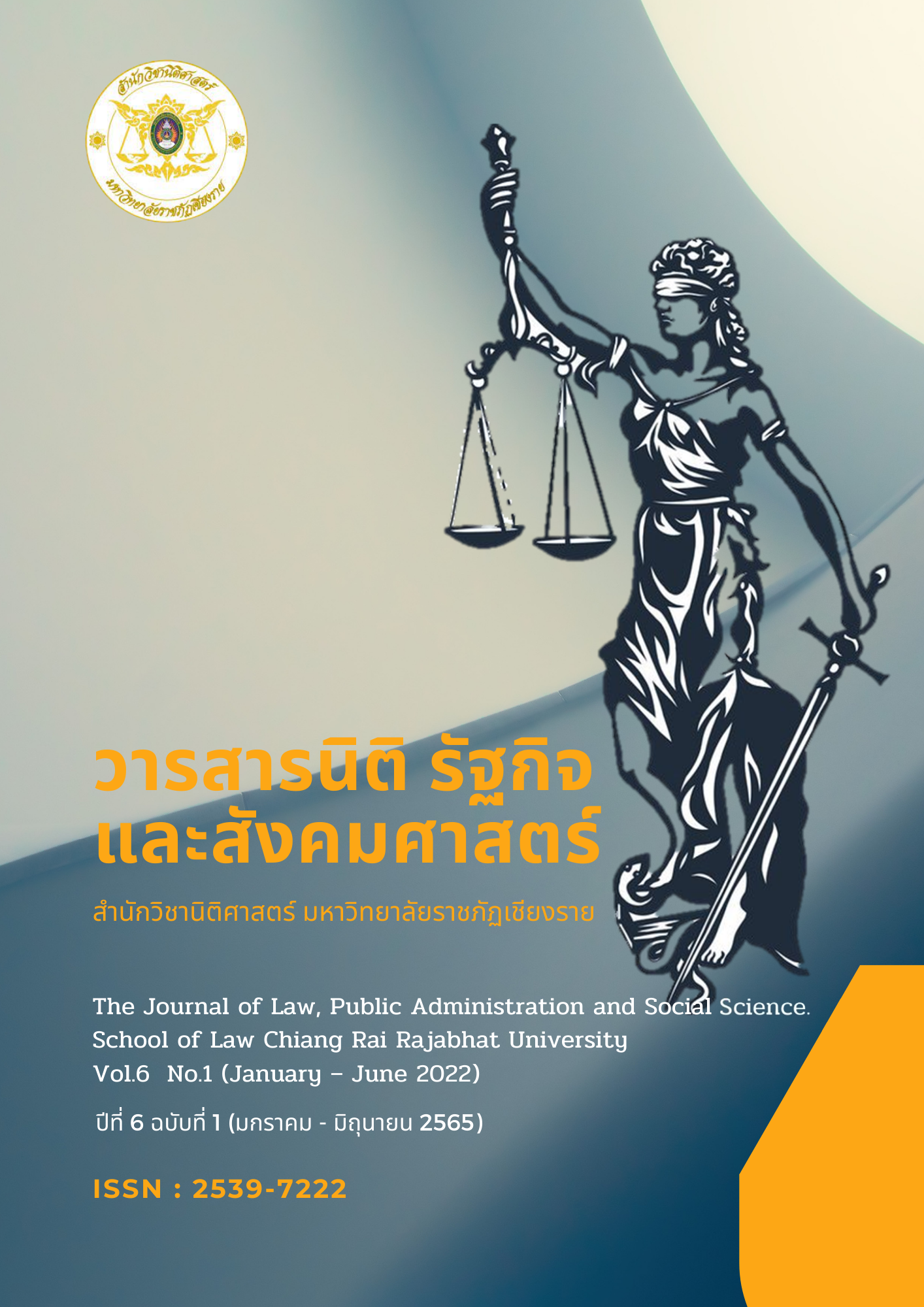Letter of Credit and Financial Crime
Main Article Content
Abstract
Letter of credit is utilized as payment method for international trade which a bank hold itself to pay against documents, tendered by the seller, that comply to terms and conditions required by the letter of credit. The mechanism of letter of credit is a guarantee to the seller that, if he tenders complying documents to the bank, the bank must pay. However, letter of credit may be used for the purpose of financial crime through the conspiracy between the seller and the buyer, which causing damages to both private and public interests. Customer Due Diligence practice under Anti Money Laundering Act B.E. 2542 is inadequate for the detection and prevention of financial crime in letter of credit transaction.
Article Details
References
กำชัย จงจักรพันธ์. “การบังคับใช้ UCP ในระบบกฎหมายไทย : กฎเกณฑ์ที่ยากจะหลีกเลี่ยง.” วารสารนิติศาสตร์ มหาวิทยาลัยธรรมศาสตร์ 32, ฉ.2 (มิถุนายน 2545): 443.
ชวลิต ชวลิตพงศ์พันธุ์. “มาตรการทางกฎหมายไทยในการจัดการกับปัญหาการฉ้อโกงทางพาณิชย์นาวี.” วิทยานิพนธ์ปริญญามหาบัณฑิต คณะนิติศาสตร์ มหาวิทยาลัยธรรมศาสตร์, 2546.
Alan Davidson. “Fraud: the Prime Exception to the Autonomy Principle in Letters of Credit.” International Trade and Bussiness Law Annual 8 (2003): 24.
Adam Hayes. “Bill of Sale.” July 2019. https://www.investopedia.com/terms/b/bill-of-sale.asp. accessed April 23, 2021.
BAFT. “BAFT.” https://www.baft.org/about-baft. accessed July 24, 2020.
David Gray Carlson, and William H. Widen. “Letter of Credit, Voidable Preference, and the “Independent” Principle.” The Business Lawyer 54, no. 4 (August 1999): 1662.
David M. Rosenfield, “Two Key Current Money Laundering Issues for Banks.” April 2008. http://www.herrick.com/publications/two-key-current-money-laundering-issues-for-banks/. accessed September 24, 2020.
Douglas G. Baird. “Standby Letters of Credit in Bankruptcy.” The University of Chicago Law Review 49 (1982): 149-151.
Felicity Monteiro. “Documentary Credit: The Autonomy Principle and the Fraud Exception: Acomparative Analysis of Common Law Approaches and Suggestions for New Zealand.” Auckland University Law Review 13 (2007): 147.
Jack Raymond. Documentary Credit : the law and practice of documentary credits including standby credits and performance bonds. London: Butterworths, 1991.
Jack Raymond. Jack: Documentary Credit. 4th ed. West Sussex: Tottel, 2009.
Kern Alexander. “International Financial Crime and Documentary Credit.” Journal of Financial Crime 3, Issue 1(1995): 80-81.
Peter Elligner, and Dora Neo. The Law and Practice of Documentary Letters of Credit. Oregon: Heart, 2010.
Senator John Kerry, and Senator Hank Brown. The BCCI Affair: A Report to the Committee on Foreign Relations United States Senate. Washington: U.S. Government Printing Office, 1993.
Tareq Al-Tawil. “Letter of Credit and Contract of Sale: Autonomy and Fraud.” International Trade & Business Law Review 16 (2013): 171.
The Wolfsberg Group, “The Wolfsberg Group.” https://www.wolfsberg-principles.com/. accessed July 24, 2020.
The Wolfsberg group, ICC and BAFT, “Trade Financial Principle : 2019 amendment.” 2019. https://www.wolfsberg-principles.com/sites/default/files/wb/Trade% 20Finance%20Principles%202019.pdf. accessed July 24, 2020.


